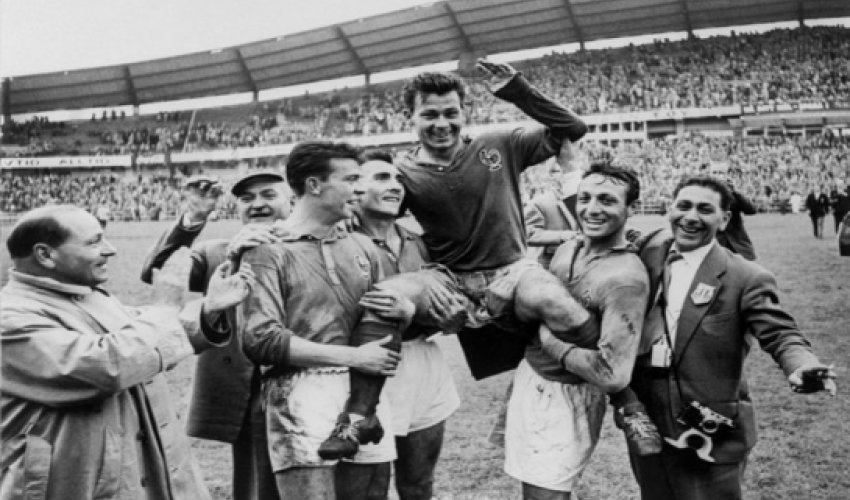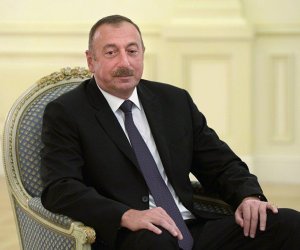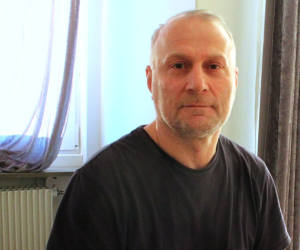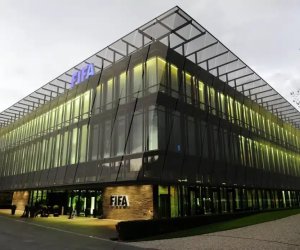The 10 most potent attacks in the history of the World Cup

27 goals in five matches (5.40 goals per match)
Given that Hungary possessed one of the most potent strike forces ever assembled, it remains a mystery to many just how Ferenc Puskas and his team-mates stumbled at the final hurdle in Switzerland. Rarely, if ever, has a national side boasted such a prolific attacking line-up as the Hungarians did in 1954: Puskas, who was widely considered to be the best player in the world at the time, was joined by eventual tournament top scorer with 11 goals Sandor Kocsis, Zoltan Czibor and Nandor Hidegkuti. The statistics speak for themselves: 17 goals in their opening two matches and 27 throughout the tournament. No team has ever scored more, although coach Gusztav Sebes' Magical Magyars could not manage to claim the trophy their talent deserved, losing 3-2 to West Germany in the final.Memorable moment: The goals Hungary put past eventual winners West Germany in an 8-3 first round pummelling. Never mind that the Germans sent out a reserve team in a tactical move that ultimately paid off, this, along with the 9-0 drubbing of South Korea a game earlier, was a stark demonstration of the immense firepower the Hungarians possessed.2. West Germany 195425 goals in six matches (4.17 goals per match)It turns out that 1954 was a bit of a goal-fest. Between June 16 and July 17, 140 goals were scored in just 26 matches. And of course, champions West Germany did their part to bolster those figures. With 25 under their belts throughout the duration of the tournament, Fritz Walter and his team-mates nearly matched the Hungarians in terms of goals scored, but the Germans won't have been too bothered by that particular stat, given they had the last laugh and left Switzerland with the trophy - the first time Germany had won the World Cup.Memorable moment: When, with six minutes remaining in the final, German right winger Helmut Rahn beat Hungary keeper Gyula Grocics to notch his second of the match and put the huge pre-match underdogs 3-2 up. It was the first time Hungary had trailed during the tournament and the match would later be dubbed 'The Miracle of Berne'.3. France 195823 goals in six matches (3.83 goals per match)The magical quartet of Just Fontaine, Raymond Kopa, Roger Piantoni and Jean Vincent lit up an already bright Swedish summer in 1958 with Fontaine in particular writing himself into tournament folklore with an incredible 13 goals. That record still stands today and is testament to the Marrakech-born striker's achievement. His goals helped France reach the semis, where they lost to eventual winners Brazil, but their performances had already earned rave reviews across the globe and remain to this day a reference point for French football.Memorable moment: Fontaine's four-goal salvo against West Germany in the third-place play-off which put the striker on a pedestal from which he is still to be toppled.4. Uruguay 193015 goals in four matches (3.75 goals per match)Uruguay was charged with organising football's first World Cup in 1930 and, having secured Olympic titles in 1924 and 1928, the host nation already boasted one of the finest attacks in the world. Having to defend against the likes of Pedro Cea, Hector Castro, Pablo Dorado, Pedro Petrone and Hector Scarone was a scary enough prospect for opposition teams, but with the intimidating home crowds to deal with as well, it could only lead to one outcome: a Uruguayan success. Four goals against Romania, six in the semi-final against Yugoslavia and another four against Argentina in the final ensured that this Uruguay side went down as one of the best ever.Memorable moment: Leading 3-2 in the final, Uruguay still weren't assured of victory against Argentina until Castro swooped in the 89th minute to send the 93,000 crowd in Montevideo into raptures.5. Brazil 195022 goals in six matches (3.67 goals per match)Despite Brazil hosting the fourth edition of the World Cup in 1950, few locals would have envisaged just how well the tournament would turn out. Ademir, the Botafogo centre-forward, enjoyed a near-perfect competition and his four goals against Sweden in the final group stage helped him win the Golden Boot, although there is a degree of confusion over the total figure: nine is claimed in some quarters, seven in others. Regardless, his nearest competitor was Uruguay's Oscar Miguez with just five, which renders any argument over the deserved winner of the award pointless.Memorable moment: Zizinho, Jair and Ademir were reduced to tears on leaving the Maracana after having lost to Uruguay 2-1 in the decisive match of the final group stage, watched by a barely comprehensible 200,000 fans in Rio.6. Argentina 193018 goals in five matches (3.60 goals per match)Guillermo Stabile, Carlos Peucelle, Adolfo Zumelzu and Luis Monti formed the first great World Cup forward line at the inaugural competition in Uruguay. In Stabile, they had a true goalscoring legend and the Huracan forward netted eight goals in four matches to finish as the tournament's top scorer. He also made World Cup history by becoming the first player to score a hat-trick, in a 6-3 win over Mexico, but his exploits in front of goal were not enough to clinch the title for Argentina, who lost to hosts Uruguay in the final.Memorable moment: Powered by Stabile, the two tennis scores racked up by Argentina were quite remarkable - 6-3 against Mexico and 6-1 against the USA.7. Brazil 197019 goals in six matches (3.17 goals per match)Pele, Gerson, Tostao, Jairzinho, Rivelino... these names conjure up nothing but images of joyful, free-flowing, attacking football and their Brazil team are regarded by many as one of the best sides to ever grace the world stage. In Mexican heat, Carlos Alberto's men served up a feast of football that was, and is still to this day, devoured by football fans hungry to be entertained. Four goals against the Czechs, Peru and Italy, three against Romania and Uruguay... only Gordon Banks and his England team-mates were able to resist the onslaught, conceding just one Jairzinho effort.Memorable moment: No one who was present at the Azteca Stadium on June 21, 1970 will ever forget the fantastic strike from Carlos Alberto in the 86th minute to make it 4-1 in the final against Italy. Indeed, few football fans of a younger generation will be unaware of the goal, such is its iconic status. The passing move in the build-up and the finish with the outside of his right boot summed up Brazil's tournament - pure flair.8. Portugal 196617 goals in six matches (2.83 goals per minutes)The English summer, Wembley, Bobby Moore, Geoff Hurst, a Russian linesman, the World Cup - memories of 1966 are pretty clear for England fans. But there was another team, led by the best player in the world at the time, who made a lasting impression in England: Portugal and Eusebio. "The other Pele", as the European press dubbed him, possessed an exceptional attacking talent as his nine goals at the tournament attested to. Ably assisted by Jose Augusto and Jose Torres, Eusebio's Portugal made it to the semi-finals, where their run was ended by a Bobby Charlton brace.Memorable moment: Trailing 3-0 after 25 minutes, Portugal looked down and out against North Korea at Goodison Park in the quarter-finals. But Eusebio had other ideas - the Mozambique-born striker scored four in just over half an hour to turn the tie on its head and set Portugal on their way to an incredible 5-3 win.9. West Germany 197017 goals in six matches (2.83 goals per match)Along with Brazil and Italy, the West German side lit up the 1970 World Cup with their incredibly potent firepower up front, led by the greatest goalscorer Europe has ever seen in Gerd Mueller. Mueller finished the tournament as top scorer with 10 goals as the Germans, also boasting the likes of Franz Beckenbauer, Wolfgang Overath, Karl-Heinz Schnellinger and Uwe Seeler, reached the semi-finals. They also were able to gain revenge over England for their defeat in the 1966 final with 3-2 win after extra-time in the quarters, the winning goal coming from none other than that man Mueller.Memorable moment: The ubiquitous Mueller delivered on the biggest stage with two extra-time goals in a thrilling semi-final against Italy. Sadly, his efforts were in vain as Gianni Rivera's 111th minute goal consigned the Germans to a 4-3 defeat.10. Brazil 200218 goals in seven matches (2.57 goals per match)Another attacking line-up to strike fear into the hearts of even the best defences in the world: Ronaldo, Rivaldo and Ronaldinho. Sharing 15 goals between them, the trio fired Brazil to glory in Japan and South Korea, along the way playing some of the most scintillating attacking football seen at a World Cup. Seven matches, seven wins and a fifth World Cup for Brazil told their own story.Memorable moment: Ronaldo's double in the final - the first a poacher's tap-in, the second a brilliant finish - proved too much for Germany and brought a double celebration from the striker - not only did his goals win the trophy for Brazil, but they also delivered the Golden Boot with a total of eight.(uk.eurosport.yahoo.com)ANN.Az




































 Photo
Photo 



 Video
Video 

